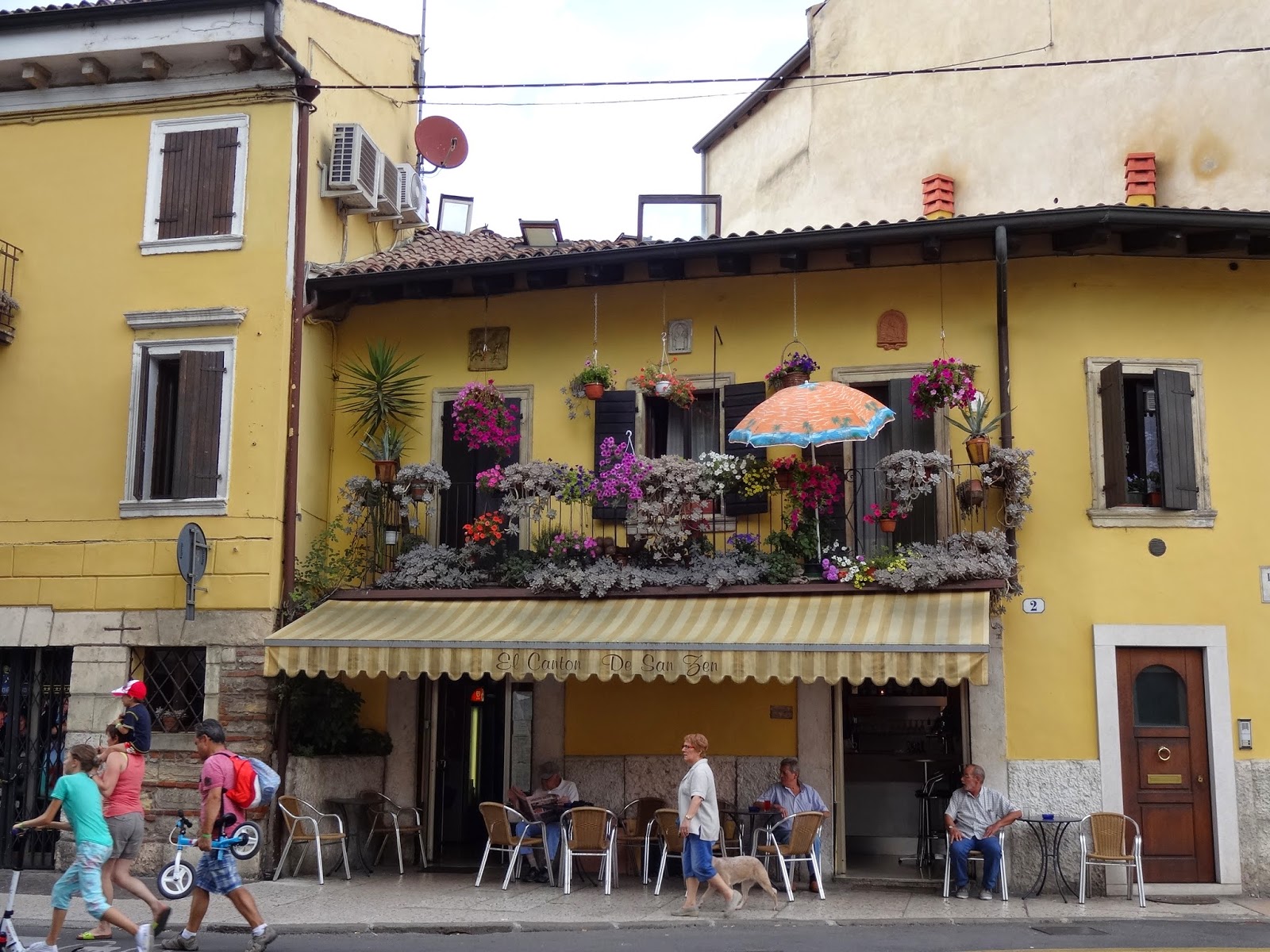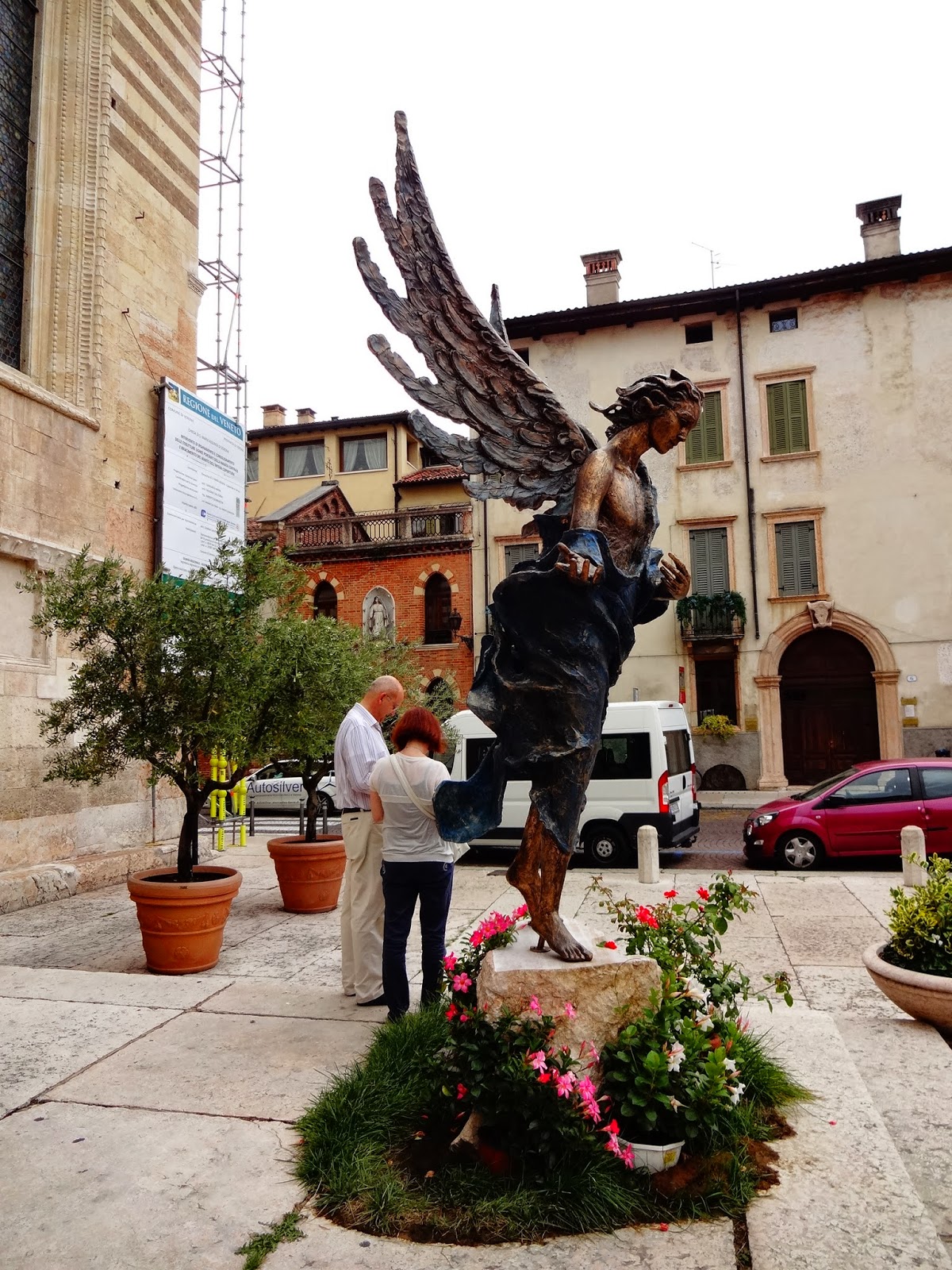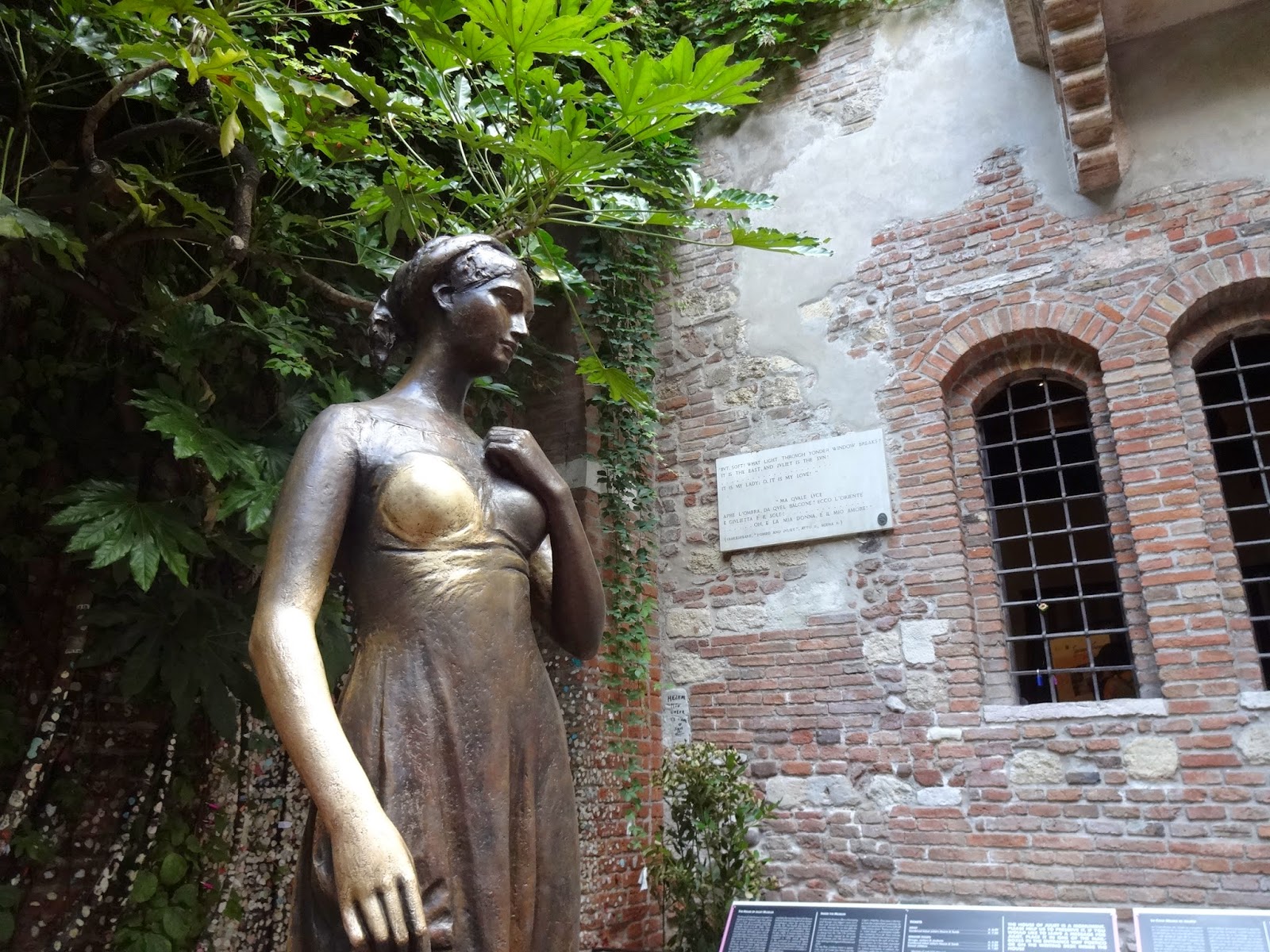How to get there: If you are looking for a public transportation, train is the most convenient. Verona has a main station called Stazione Porta Nuova. It is located at walkable distance from the old city center (about 1.5 km to Arena). There are also many buses from the station to city center (marked on the map below.)
Moving around in Verona: Pretty much in walking distances.
Top 5 of Verona are (of course in a very personal way)
1) Arena
2) Castelvecchio and Ponte Scaligero
3) Churches in Verona
4) Teatro Romano
5) Casa di Giulietta
1) Arena
It is the third largest Roman amphitheater after Colosseum and the amphitheater near Naples. It has been used to be used as a center for entertainment since 30 AD. When I was visiting Verona, Aida and Turandot by Puccini were performed. One can visit the place in the daytime.
Pic 1 : Settings of Turandot outside the Arena
Pic 2 : This shows how actively the arena is operated.
2) Castelvecchio and Ponte Scaligero
Castelvecchio is an impressive castle next to Adige river, built by Cangrade II. Now it has a collection of medieval and early Renaissance art. Ponte Scaligero is a medieval bridge which is a part of the old defense system of Castelvecchio.
Pic 3 : Ponte Scaligero
Pic 4 :Castelvecchio
3) Churches in Verona
There are four main churches in Verona; San Zeno Maggiore, Sant'Anastasia, Duomo (Verona cathedral) and Chiesa di San Fermo
San Zeno Maggiore
The Basilica of San Zeno is one of the most beautiful Romanesque architecture in Northern Italy. Saint Zeno, 8th Bishop of Verona, converted the entire town to Christianity. The church was built on the place where he was buried.
Pic 5: The facade of the Basilica of San Zeno
The impressive facade is decorated with atlernating tufa and stone and bricks.
Pic 6: Bronze panels of the west door
The highlight is the 11th and 12th-century bronze door panels. The 48 bronze panels of the west doors depict biblical stories and scenes from the life of San Zeno.
Pic 7: Nave ceiling
The nave has a ship's keel ceiling, named due to its resemblance of the inside of an upturned boat.
In front of San Zeno Maggiore, flee market opens every Sunday.
Pic 8 : Surroundings of San Zeno Maggiore
San Fermo Maggiore
In San Fermo Maggiore, there are two churches, one lower and another one upper. The lower church is Romanesque and the upper is Gothic. The upper church has an impressive ceiling and frescoes.
Pic 9 : View of apse of San Fermo Maggiore
Pic 10 : The facade of the upper church of San Fermo Maggiore
Pic 11 : The lower church of San Fermo Maggiore
Sant'Anastasia
It is an Italian Gothic church dated from late 13th Century and work continued till 16th Century. St. Anastasia is the largest church in Verona, supported by twelve impressive pillars in red Verones marble.
Pic 12 : The facade of Sant'Anastasia.
The only thing never to be complete was the facade.
Pic 13 : Lighting a candle in the church is one of memorable activities while traveling in Italy.
Pic 14 : One eye contact with the hunchback.
The holy water stoup is supported by a hunchback figure which has appealed to the superstitious, saying that touching a hunchback on the hump brings good luck.
Pic 15 : Highly decorated ceiling shows a great interior in the nave.
Duomo is the verona's cathedral, once destroyed by an earthquake in 1117 and rebuilt on the foundations of an ancient Christian building.

Pic 16 : Duomo
The facade of the cathedral has a Gothic style window which shows that renovation was done in 14th Century. It also has two storied projecting porch.
Pic 17: A sculpture in front of the facade
Pic 18 : Colorful and detailed fresco
Pic 19 : Main chapel
4) Teatro Romano
The theater was built in the 1st century BC and is one of the best preserved Roman theaters in Northern Italy. Andrea Monga, a wealthy merchant discovered this ruins under houses and churches. He purchased the entire place and conducted excavation.
Pic 20 : Theatro Romano is now modified to hold events.
5) Casa di Giulietta
It is the (so-called) house of Juilet, for TRUE LOVE FOREVER, duh~
How to do it: write your wishes on the WALL
OR
touch Juliet's right BREAST
Pic 21 :The wall and the statue of Juliet.
BTW I heard from a cafe owner that this Juliet statue is a pretty new one. Due to too many touches from people, the old one got a hole in her breast. Painful story, huh~
What else to explore
1) Piazza Erbe
It has many restaurants and cafes. There is also a small market for tourists but not a good place to shop.
Pic 22: Piazza Erbe and market in the background
2) Piazza dei Signori
Pic 23 : View of the tower in Piazza dei Signori
3) Santuario Madonna Di Lourdes
Pic 24 : A night scene of Santuario Madonna Di Lourdes. It is one of the highest point to see the entire city.
4) Porta Bosari and Porta Leoni
These are ancient Roman gates in Verona.
Pic 25 : Porta Bosari
Pic 26 : Porta Leoni
Backpacker's tip:
1) Pick a free map from Tourist information center.
2) Eurospar Supermercati,a big supermarket is located in the city center (marked on the map)
3) Combined ticket can be purchased for all four churches in Verona.
My own walking tour:
A green line on the map is the walking path to Santuario Madonna Di Lourdes. I went there in the night around 10 PM so could not get into the church but night scene of the city from the top was just too great to miss.































A beautiful place indeed. I will definitely pay this place a visit in the future. I feel bad for Juliet's breast....
ReplyDeleteNonetheless, a good start as a blogger. Good info and photos. Keep up the good work!
Thanks. I wish I had a photography skill like yours to put on my blog.
DeleteNice !
ReplyDelete